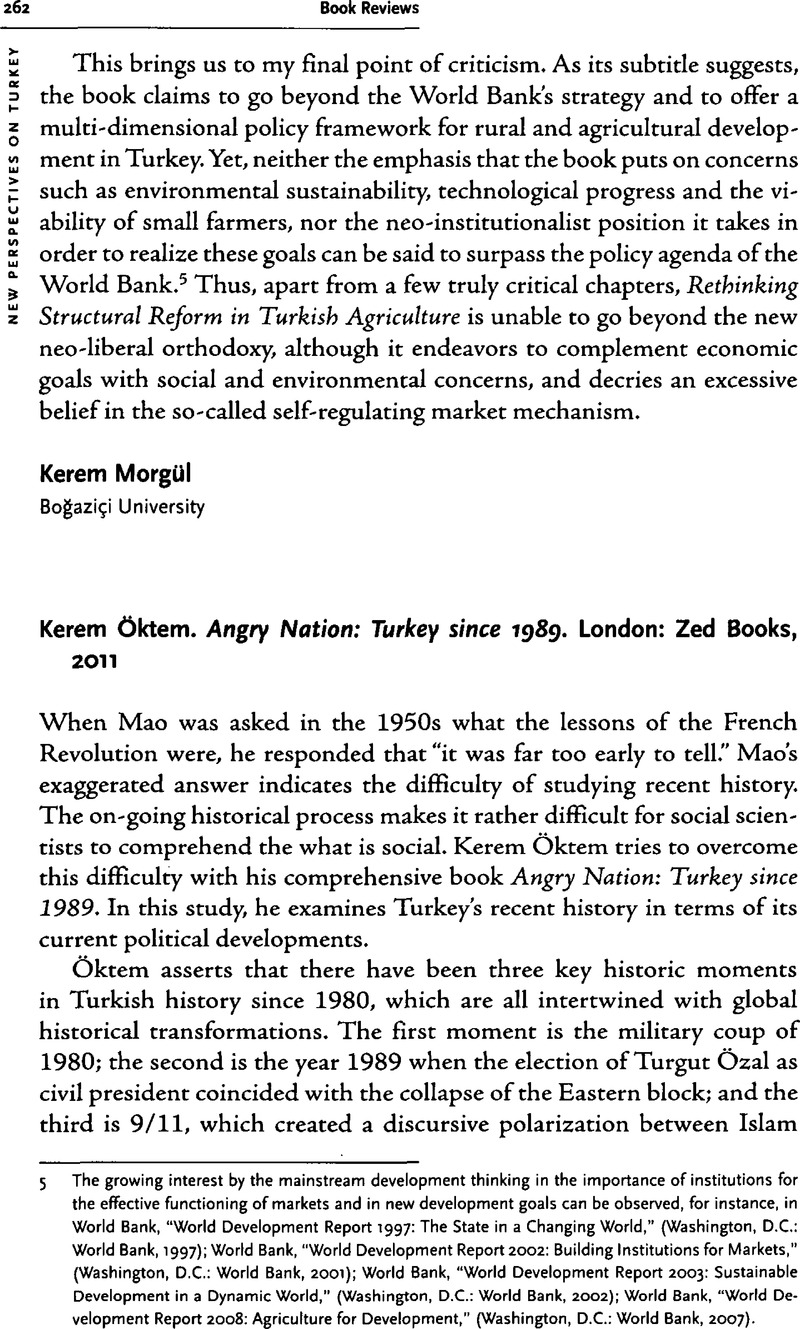No CrossRef data available.
Published online by Cambridge University Press: 21 July 2015

1 Manichaeism is a dualistic religious system, its basic doctrine being that of a conflict between light and dark, matter being regarded as dark and evil. In this regard, the Manichean dichotomy refers to the existence of a binary opposition between different parts which symbolize the absolute evil and good.
2 This neglect of social actors and processes not only creates a problematic historical approach, but also leads to an occasional confusion of empirical data. For example, Öktem dramatically confuses the pro-Kurdish Demokratik Toplum Partisi (DTP, Democratic Society Party) with the center-right Demokratik Türkiye Partisi (DTP, Democratic Party of Turkey), which separated from the Doğru Yol Partisi (DYP, True Path Party) during the 28 February process. He incorrectly writes that the DTP, Democratic Society Party (not the DTP, Democratic Party of Turkey) formed a coalition government with the ANAP and the Demokratik Sol Parti (DSP, Democratic Left Party [p. no]). Claiming that a pro-Kurdish party joined a governmental coalition in the 1990s is not only a historical mistake, but also contradicts öktem’s portrait of the 1990s.